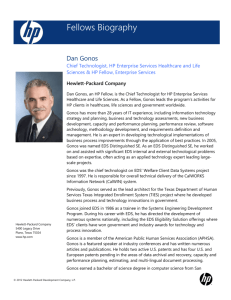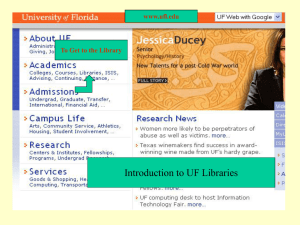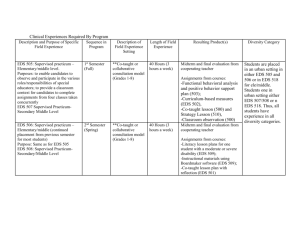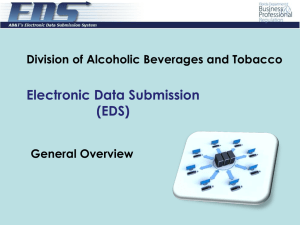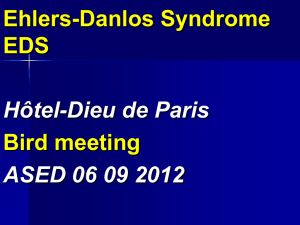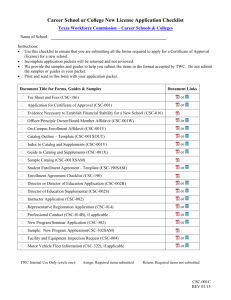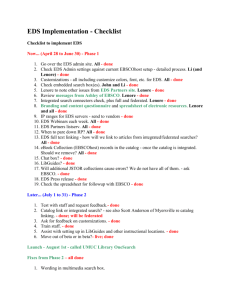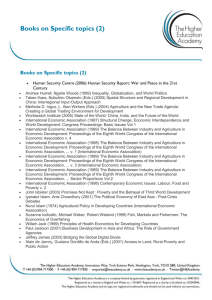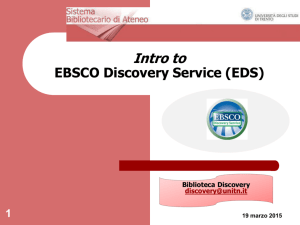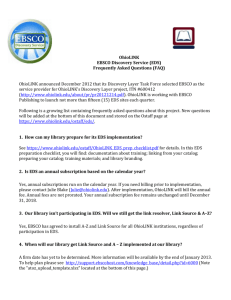This was sent in an email to Larry from Babak on Tuesday, February
advertisement
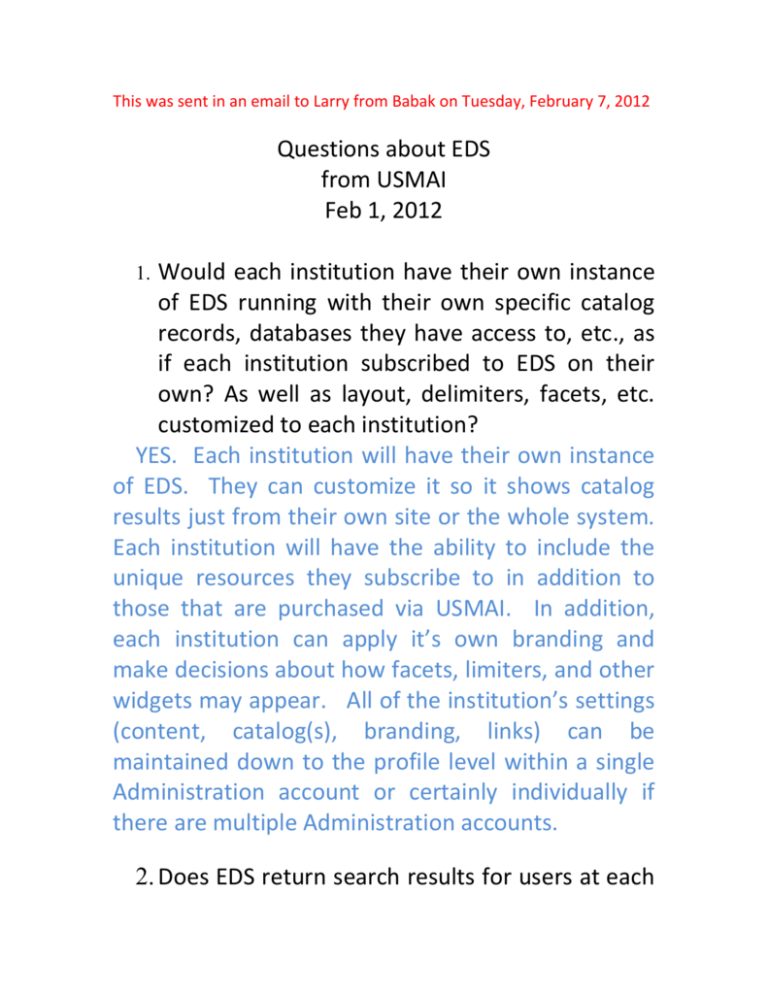
This was sent in an email to Larry from Babak on Tuesday, February 7, 2012 Questions about EDS from USMAI Feb 1, 2012 Would each institution have their own instance of EDS running with their own specific catalog records, databases they have access to, etc., as if each institution subscribed to EDS on their own? As well as layout, delimiters, facets, etc. customized to each institution? YES. Each institution will have their own instance of EDS. They can customize it so it shows catalog results just from their own site or the whole system. Each institution will have the ability to include the unique resources they subscribe to in addition to those that are purchased via USMAI. In addition, each institution can apply it’s own branding and make decisions about how facets, limiters, and other widgets may appear. All of the institution’s settings (content, catalog(s), branding, links) can be maintained down to the profile level within a single Administration account or certainly individually if there are multiple Administration accounts. 1. 2. Does EDS return search results for users at each institution, based on each campus’ individual set of databases? If the list returned as the result of a search at Institution X includes items that Institution Y has access to (but not Institution X), would the user at Institution X hit a dead-end trying to access such items? Or is there an alternative of automatically opening an interlibrary loan form, for example? EDS will return results customized to the institution. If an institution wishes to expand search to include resources that they do not subscribe to and are available as part of the Discovery index, they are able to do so and then present link to ILL form to request items they do not own or subscribe to. Each individual search will be executed against the content established by the institution itself – reference question above. Within the Administration interface, you have the ability to customize the content set, branding, links etc on an individual profile level. 3. Assuming every institution's catalog records go into the central index, does EBSCO need formal permission from every campus to access and integrate the catalog records? Can there be different relevancy ranking with respect to catalog hits in each institution so that those with holdings of the specific institution in question would float to the top? How would real-time availability, local notes, etc. display be handled in a one record for all institutions environment in the central index? Each catalog is available to the institutions that the customer wishes to make it available do (consortia member institutions in this case). The Relevancy Ranking can boost each institutions own content, their catalog, to ensure that these results are presented higher in the result list. 4. Would EDS be able to integrate content that is local to one institution (e.g. LibGuides), so it can be discoverable along with other materials? If so, would the local content of Institution X be discoverable only by Institution X's users or by users from all institutions? Sites can add local content to their EDS profile. In the example of Lib Guides, they can be added in the right column as a widget. Local content could be exported to other USMAI members profiles if requested and approved by library the content belongs to. 5. How does EDS work with SFX? Does it recognize it for the full-text delimiter? EDS works well with SFX. The full text limiter will not pull all items known to be part of the libraries holdings via SFX, only smartlinking and custom links such as JSTOR, Science Direct and other resources available in the base index. 6. How does the Facets function work? Does it query the full set of records retrieved in the search, or only a subset of these? The facets are built from the meta data returned of the result set.
